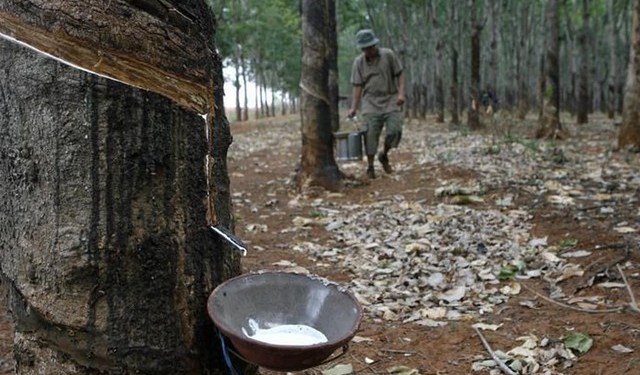BANGKOK: Thailand’s government has yet to decide whether it will extend its rubber intervention scheme when it expires in March and stocks in the world’s biggest producer of the commodity are likely to rise until then, a senior official said.
Rubber stocks held by the Thai government are currently at 200,000 tonnes, up 18% from November, Deputy Agriculture Minister Yuthapong Charassathien told Reuters, as the government continues to buy rubber from farmers to prop up prices.
“Although prices have rebounded substantially, we will continue to buy until the scheme expires at the end of March as we need to support farmers,” Yuthapong said.
Asked if the government would extend the scheme, he said: “Let’s see what the situation will be in March then we will consider this issue.”
Rubber, mainly used to make tyres, is a politically sensitive commodity in Thailand, where it provides a livelihood for around 1.3 million smallholders, mostly poor farmers who form a significant votebank for the government.
Last year, Thailand’s government approved 45 billion baht (US$1.51bil) to buy rubber from farmers in a bid to shore up prices which had more than halved since hitting record highs in 2011 as demand shrank alongside a faltering global economy.
Thailand also agreed in August with other major producers Indonesia and Malaysia to cut exports by 300,000 tonnes in total, helping lift prices. The three countries account for 70% of global natural rubber output.
Benchmark Thai RSS3 prices are now trading at US$3.20 per kg, above the US$2.80 per kg level in mid-2012 which prompted protests by disgruntled farmers, but still below the record high of US$6.40 in February 2011.
– Reuters



























